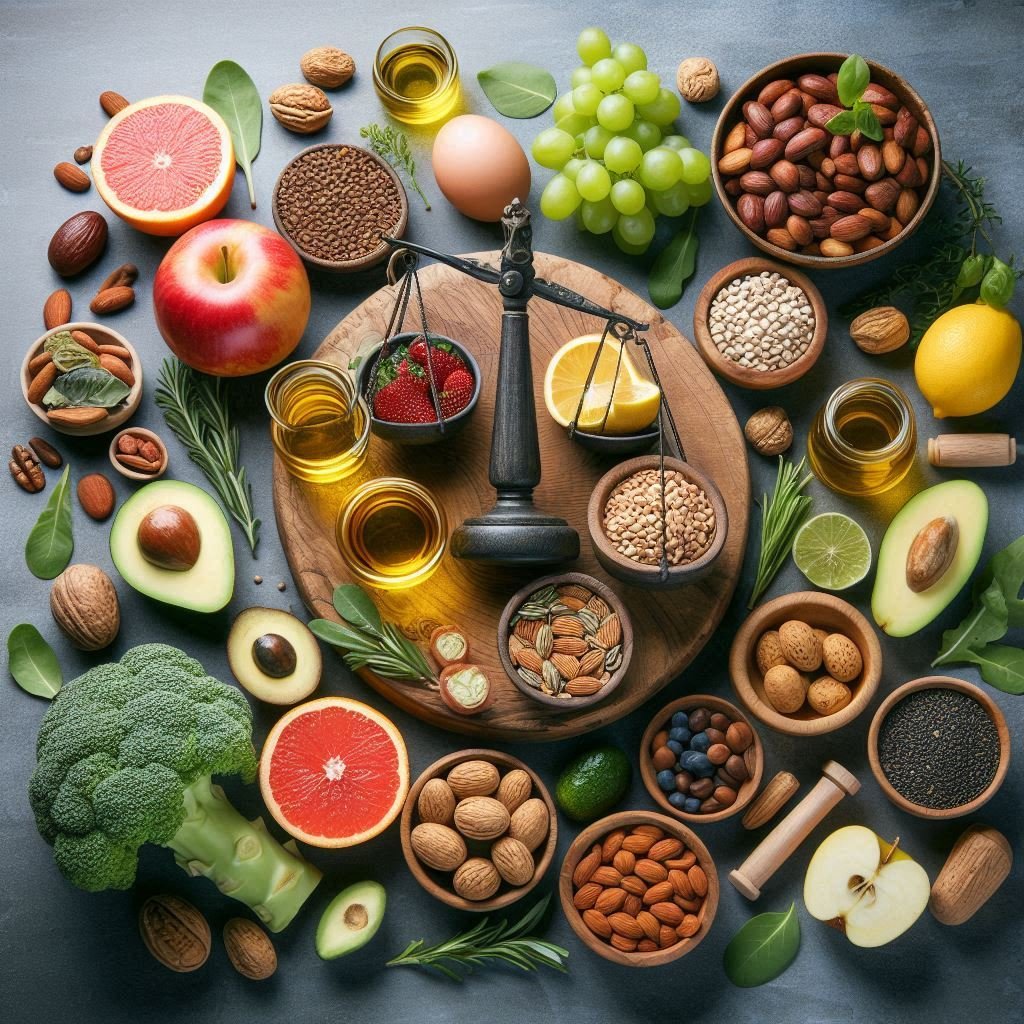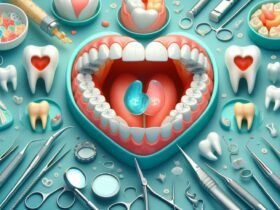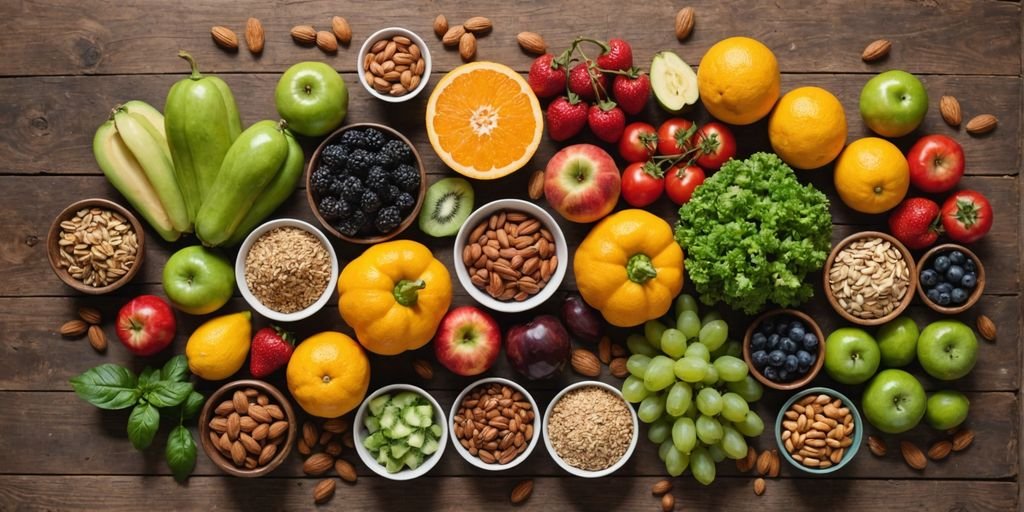Table of Contents
Starting a holistic diet can seem like a big step, but it’s a journey that can bring many benefits to your overall well-being. A holistic diet is more than just what you eat; it’s about nourishing your body, mind, and spirit. By focusing on whole foods, staying hydrated, and eating mindfully, you can improve your health and feel more connected to your body. Let’s explore the basics of a holistic diet, how to get started, and the many benefits it offers.
Key Takeaways
Understanding the Holistic Diet


What is a Holistic Diet?
A holistic diet is more than just a way of eating; it’s a lifestyle that focuses on the whole person—mind, body, and spirit. This approach encourages you to listen to your body’s needs and make food choices that support overall well-being. Unlike rigid modern diets, a holistic diet allows for flexibility and mindfulness, helping you enjoy your meals without guilt.
Principles of Holistic Nutrition
Holistic nutrition is based on several key principles:
- 1. Whole Foods: Prioritize unprocessed, natural foods like fruits, vegetables, whole grains, and lean proteins.
- 2. Balance and Moderation: Ensure a balanced intake of macronutrients and micronutrients to support overall health.
- 3. Mindful Eating: Pay attention to hunger and fullness cues, and savor each bite.
- 4. Connection to Food Sources: Understand where your food comes from and choose sustainably sourced options.
Differences Between Holistic and Conventional Diets
While conventional diets often focus on calorie counting and specific food restrictions, holistic diets take a broader approach. They consider factors like emotional well-being, lifestyle, and even environmental impact. Holistic diets are not one-size-fits-all; they are tailored to meet individual needs, making them a more personalized and sustainable option for long-term health.
A holistic diet is not just about what you eat, but how you live. It encourages a deeper connection to your food and a more mindful approach to eating.
By understanding these principles, you can start to see how a holistic diet can be a more balanced and fulfilling way to nourish your body and mind.
Steps to Begin Your Holistic Diet Journey


Assessing Your Current Eating Habits
Before diving into a holistic diet, it’s crucial to understand your current eating habits. Take note of what you eat daily and how it makes you feel. This will help you identify areas for improvement and set a baseline for your journey.
Setting Realistic Goals
Setting achievable goals is essential for long-term success. Start with small, manageable changes rather than drastic overhauls. For example, aim to incorporate more whole foods into your meals or reduce processed food intake gradually.
Finding a Qualified Holistic Nutritionist
A qualified holistic nutritionist can provide personalized guidance tailored to your needs. They can help you create a balanced meal plan and offer support as you transition to a holistic diet. Look for professionals with certifications and positive reviews to ensure you’re getting the best advice.
Key Components of a Holistic Diet
Whole Foods Emphasis
A holistic diet prioritizes whole and unprocessed foods. This means choosing fresh fruits and vegetables, whole grains, unprocessed meats, eggs, and nuts. These foods provide essential nutrients that help our bodies function optimally. By focusing on whole foods, you can avoid the pitfalls of processed foods, which often contain added sugars, unhealthy fats, and artificial ingredients.
Hydration and Mindful Eating
Staying hydrated is crucial for overall health. Drinking plenty of water helps maintain bodily functions and supports digestion. Mindful eating, on the other hand, involves paying attention to what and how you eat. This means listening to your body’s hunger and fullness cues, and savoring each bite. By practicing mindful eating, you can enjoy your food more and avoid overeating.
Moderation and Variety
A key principle of a holistic diet is moderation. This means not overindulging in any one type of food, but rather enjoying a balanced diet. Variety is also important, as it ensures you get a wide range of nutrients. By eating a diverse array of foods, you can support your body’s needs and maintain a healthy balance.
A holistic approach to nutrition goes beyond just counting calories or macros. It takes a 360-degree view of a person’s eating habits, lifestyle, and overall well-being.
Benefits of Adopting a Holistic Diet


Adopting a holistic diet can bring numerous benefits to your overall well-being. By focusing on nutrient-dense foods and fostering a positive relationship with food, you can improve various aspects of your health. Here are some key benefits of a holistic diet:
Disease Prevention
A holistic diet can help prevent diseases by addressing the root causes of illness. Eating patterns centered around vegetables, fruits, legumes, whole grains, and healthy fats have been shown to prevent conditions like obesity, diabetes, and heart disease. This approach not only complements medical treatment but also helps reduce risk factors and manage symptoms.
Reducing Cravings
Holistic nutrition can help reduce cravings by understanding what causes them. Instead of restricting yourself, a holistic practitioner will help you identify factors like hormonal changes, nutrient gaps, lack of sleep, or high stress that may be driving your cravings. This gentle approach helps you reconnect with your body’s natural signals of hunger and fullness, making it easier to make healthy choices.
Improving Sleep Quality
A holistic diet can also improve your sleep quality. By focusing on what your body needs and providing it with the right nutrients, you can enjoy better sleep. This approach encourages you to listen to your body’s signals and make mindful food choices, which can lead to more restful nights.
A holistic diet focuses on nourishing your body with nutrient-dense foods while also fostering a positive relationship with food.
Integrating Holistic Practices into Daily Life
Mindfulness and Stress Management
Incorporating mindfulness into your daily routine can significantly reduce stress and improve overall well-being. Mindfulness practices such as meditation, deep breathing exercises, and journaling help you stay present and manage stress effectively. These practices are essential for maintaining a balanced and healthy lifestyle.
Physical Activity and Movement
An active lifestyle is crucial for holistic health. Find physical activities that you enjoy, such as walking, dancing, or yoga, and make them a regular part of your routine. Regular exercise not only improves physical health but also boosts mental clarity and emotional balance.
Connecting with Nature
Spending time in nature can have profound effects on your mental and emotional well-being. Activities like hiking, gardening, or simply taking a walk in the park can help you feel more connected to the world around you. This connection fosters a sense of peace and fulfillment, contributing to your overall integrative health and wellness.
Integrating holistic practices into your daily life is a gradual process. Start with small, consistent steps and gradually build on them. The key is to find what works best for you and make it a part of your daily routine.
Common Challenges and How to Overcome Them
Starting a holistic diet can be rewarding, but it comes with its own set of challenges. Here are some common obstacles and tips on how to overcome them.
Dealing with Social Situations
Navigating social events while sticking to your holistic diet can be tough. Changing your dietary habits can be hard, especially when friends and family don’t share your goals. To manage this:
Managing Time and Meal Prep
Finding time for meal prep can be a significant health challenge. Here are some tips to make it easier:
Meal planning, lifestyle adjustments, and mindful eating practices can make sticking to a holistic diet more manageable.
Staying Motivated
Staying motivated is crucial for long-term success. Here are some strategies:
Remember, even men over 50 can benefit from a holistic diet. It’s never too late to start making healthier choices.
Resources for Further Learning
Books and Articles
To deepen your understanding of holistic nutrition, consider reading books and articles. Comprehensive education materials can provide insights into over 100 dietary theories and the biochemistry of food. Some recommended books include:
Online Courses and Workshops
Online courses and workshops are great ways to learn at your own pace. Many platforms offer courses on holistic nutrition, including:
These courses often cover a holistic perspective on nutrition, helping you understand the impact of various life factors on health.
Professional Organizations and Certifications
Joining professional organizations can provide networking opportunities and additional resources. Some notable organizations include:
Certifications from these organizations can enhance your credibility and knowledge in the field of holistic nutrition.
Conclusion
Starting a holistic diet is more than just changing what you eat; it’s about embracing a lifestyle that nurtures your mind, body, and soul. By focusing on whole, nutrient-rich foods and listening to your body’s needs, you can experience numerous benefits like better sleep, improved mood, and stronger immunity. Remember, it’s not about strict rules or deprivation but finding a balanced and sustainable way to nourish yourself. As you embark on this journey, take small steps and be patient with yourself. Over time, you’ll find that a holistic approach to eating can lead to a happier, healthier life.
Frequently Asked Questions
What is a holistic diet?
A holistic diet focuses on eating whole, natural foods that nourish your body, mind, and soul. It’s not just about counting calories or cutting out food groups; it’s about creating a balanced and sustainable way of eating that supports overall well-being.
How do I start a holistic diet?
Begin by assessing your current eating habits and setting realistic goals. Incorporate more whole foods like fruits, vegetables, whole grains, and lean proteins into your meals. It’s also helpful to consult a qualified holistic nutritionist for personalized guidance.
What are the benefits of a holistic diet?
A holistic diet can help prevent diseases, reduce cravings, and improve sleep quality. It also promotes better digestion, stronger immunity, and overall mental and emotional well-being.
How can I stay motivated on a holistic diet?
Staying motivated can be challenging, but setting realistic goals and keeping track of your progress can help. Surround yourself with supportive people, and remember to celebrate small victories along the way. Consulting with a holistic nutritionist can also provide ongoing support and encouragement.
Can a holistic diet help with weight loss?
Yes, a holistic diet can support weight loss by promoting balanced eating habits and reducing cravings. By focusing on whole, nutrient-dense foods and mindful eating practices, you can achieve and maintain a healthy weight.
Do I need to give up all processed foods on a holistic diet?
While it’s best to limit processed foods, a holistic diet is about balance and moderation. You don’t have to completely give up processed foods, but try to choose healthier options and enjoy treats in moderation.














Leave a Review